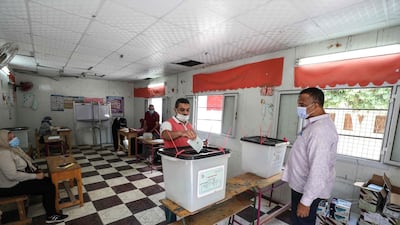Only 14.23 per cent of Egypt’s 62.94 million voters took part in the election last week of the upper chamber of parliament, a consultative body reintroduced by constitutional amendments adopted last year.
The 300-seat House of Senators has no legislative powers and will play a purely consultative role, vetting draft legislation referred by the president or the legislature and reviewing treaties with foreign countries.
Its mandate also includes the vaguely phrased tasks of “reinforcing the pillars of democracy and social justice and upholding society’s basic principles, its high values, rights, freedoms and general duties as well as deepening the democratic system”.
One third of the chamber’s members will be appointed by President Abdel Fattah El Sisi, whose supporters will dominate the new chamber. Another 100 seats were set aside for individual candidates while the final 100 were taken by an “absolute” list made up of pro-government parties which ran unopposed and only needed 5 per cent of the votes to win.
“It was a competitive election held according to the highest standards of international transparency and integrity,” the chairman of the state electoral commission, Lasheen Ibrahim, said in a statement on Wednesday. He praised Egyptians for taking part in the August 11-12 election despite the punishing summer heat and the Covid-19 pandemic, which has killed more than 5,000 people in the country and infected nearly 100,000 since it began in February.
“The glorious people of Egypt were emphatically able to pull through these conditions and show the world that they are able to face these difficulties regardless of the cost,” Mr Ibrahim said.
These factors and the consultative mandate of the new chamber could have played a part in the low turnout, with only 8.9 million of the 62.94 million eligible voters casting their ballots.
The electoral commission statement said 1.38 million ballots, or 15.42 per cent of all votes cast, were invalid, without offering an explanation for the unusually high number.
The restoration of a second chamber of parliament is part of a package of constitutional amendments adopted in a referendum last year. The changes extended the presidential term from four years to six and gave Mr El Sisi the opportunity to run, if he wishes to, for another term in office when his current one ends in 2024.
Mr El Sisi was first elected to office in 2014, a year after he led the military’s removal of Mohammed Morsi, an Islamist president, amid mass street protests against his one-year, divisive rule.


